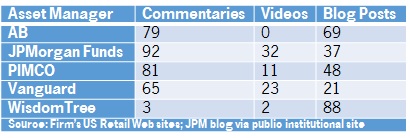Marketing Words: Should “Passion” be Part of Your Message?
Listening to a baseball podcast the other day, the two hosts digressed into a conversation about passion. One talked about the awkwardness of communicating that he is NOT passionate about what he does for a living (i.e., write and talk about the statistical nuances of baseball) given how many people love the sport. I found myself thinking that the hosts really do love the sport of baseball but have a hang-up about describing that love as a passion.
This presents an interesting issue for marketing, namely: is passion a strong term to incorporate into firm-level positioning and marketing messages? I’d argue it is not.
Most individual people aren’t passionate about what they do. But as Anu commented to me, people who excel in their work frequently have passion for it. In other words, there’s a good correlation between great performance and passion. Therefore, it’s easy to understand why a single person would describe themselves as passionate about something. It’s a characterization that conveys a deep and personal connection.
But the highly-personal nature of passion is why it falls down as a way to describe a larger organization or firm such as an asset manager. People understand that most individuals lack passion for their jobs; 70% of people are disengaged in their careers according to a Gallup survey. As a result passion at an organizational level carries a strong risk of failing the smell test; it attempts to represent something that isn’t very believable.
There is a lot of nuance in an issue like this. And while I’m not a fan of passion as a marketing term, there are certainly firms who will disagree. That’s what makes the discussion interesting.
Marketing Effectiveness Rating for Passion: 3 out of 10*
* note: scale is arbitrary, especially since this is the first post on marketing word choices








